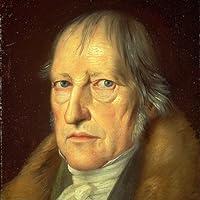
Georg Wilhelm Friedrich Hegel
Om författaren
Georg Wilhelm Friedrich Hegel was a prominent German philosopher who played a key role in the development of German idealism. His work encompassed a wide range of subjects, including metaphysics, epistemology, ethics, and political theory. Hegel is best known for his dialectical method, a process of reasoning that involves resolving contradictions through synthesis, which he applied to various aspects of philosophy and history. His major works, such as "The Phenomenology of Spirit" and "The Science of Logic," have had a lasting impact on various fields of study, influencing not only philosophy but also art, religion, and social theory.
Hegel's ideas about the development of human consciousness and history have shaped modern existential and historical thought. He believed that reality is a dynamic process where contradictions are essential for progress. His concept of the 'World Spirit' reflects his belief in a rational structure underlying the historical process, leading toward greater freedom and self-awareness. Hegel's philosophy has influenced a diverse range of thinkers, including Karl Marx, Friedrich Nietzsche, and existentialists, making him a pivotal figure in Western philosophy.